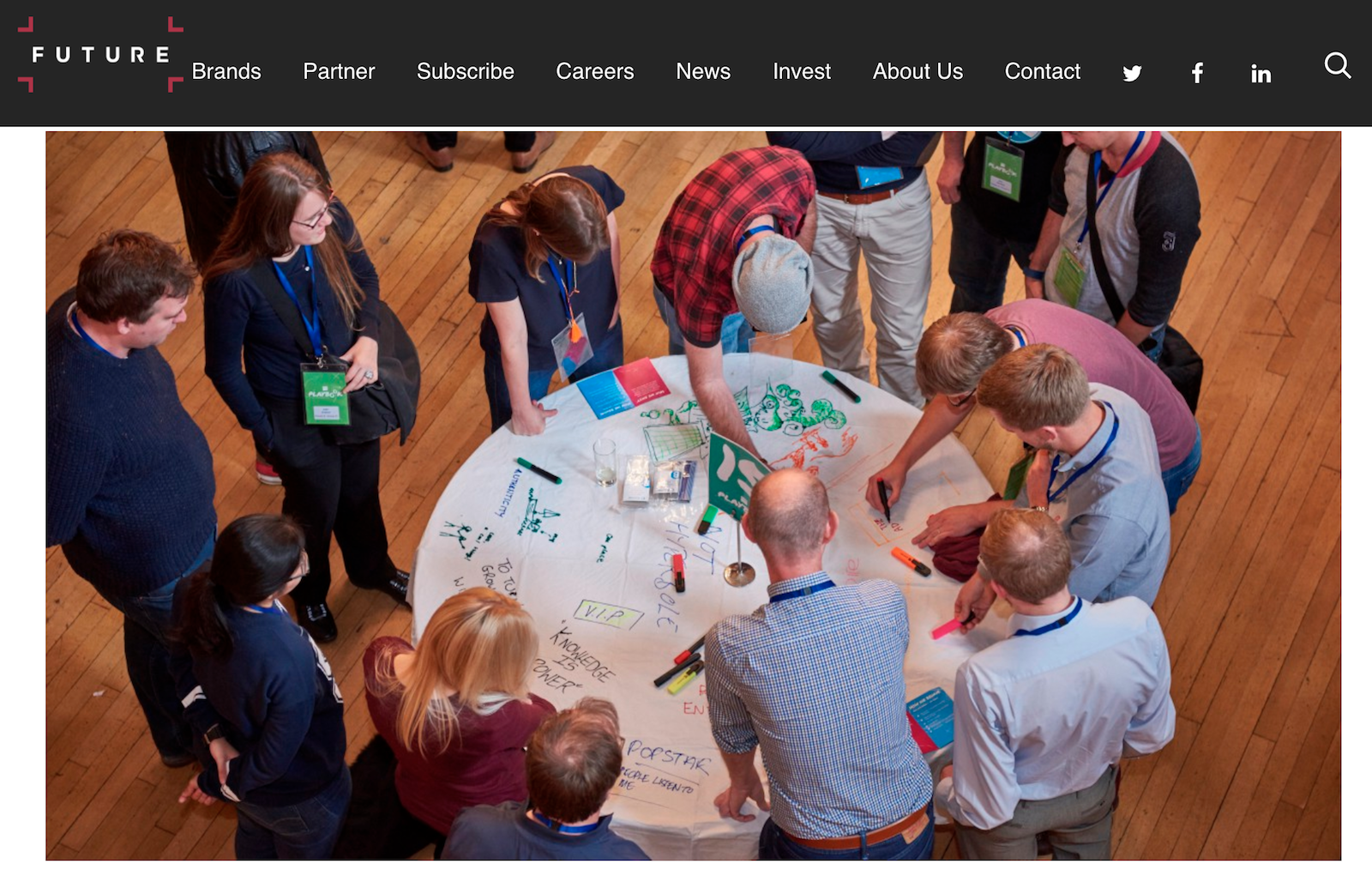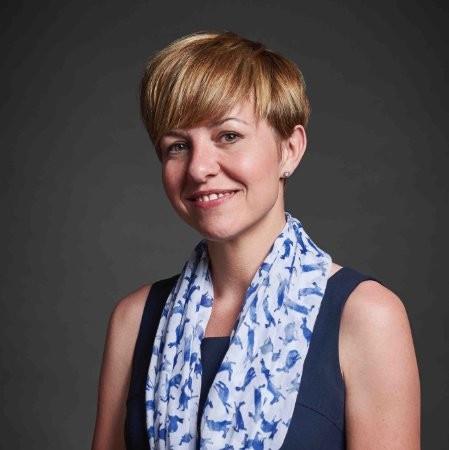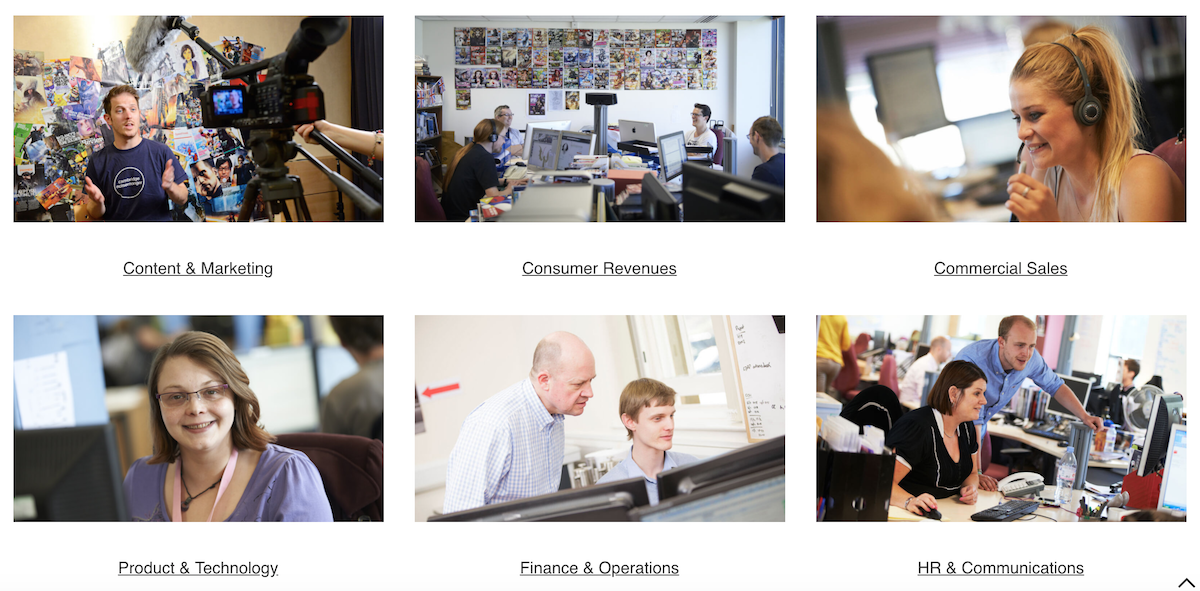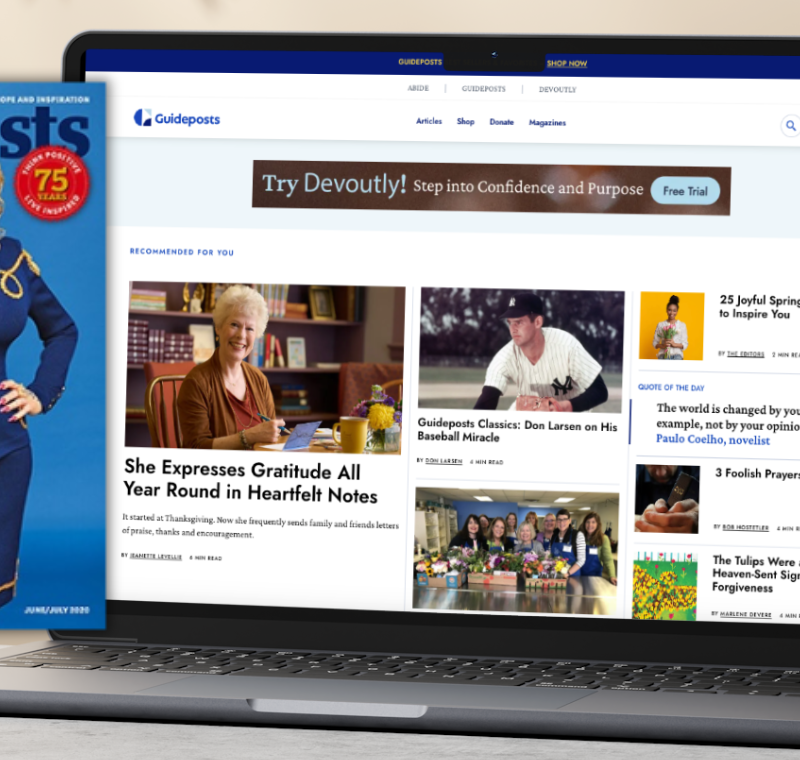How Future puts culture at the heart of growth

Screenshot: futureplc.com
Future, the FTSE-listed specialist media platform company, established in 1985, has gone through a significant transformation in recent years. This includes eight strategic acquisitions in 24 months, most recently the acquisition of Newbay Media and proposed acquisition of Haymarket titles in the last month. With these acquisitions come a further expansion into ecommerce and events, whilst the company continues to grow digital licensing, signing new partnerships and expanding its geographical footprint beyond the UK, US and Australia.
“When acquisitions and organic growth radically transforms a company, it is imperative that the company takes the people along that journey. It is important to give clarity and guidance on the ever evolving culture you want the organisation to represent. This not only needs to be representative of where we have come from but where we want to go, aligned to our strategy,” says Claire MacLellan, MD for media services, people and culture at Future.
“Just over a year ago we realised that we needed to invest much more into our people,” she explains, referencing the challenges that arise from growth and acquisitions. “It is during these times that you need to find the best ways to integrate and evolve your workplace culture to accommodate the people that join us from acquisitions. Our organisation needed to be more efficient, particularly in the ways people collaborated across regions and different divisions and offices, globally.”
She took the decision to hold workshops across the organisation, to listen to employees’ thoughts about Future, along with translating the company’s values into guidance that everyone can utilise. “We needed to understand what was truly working and also how to develop a strategy to develop our people and create a healthy culture for Future.”
 |
Claire MacLellan / Photo: LinkedIn/Claire MacLellan
Beyond HR
The company established its ‘defined values’ just over three years ago. The workshops gave insight into whether these values were actually embedded in the company’s work culture. “We needed to understand if people understood the value of values.”
Over three months 15 workshops were conducted across the entire business in the UK, US and Australia. Despite the fact that none of these workshops were compulsory, employees embraced the opportunity. “It was a chance for people to open up. With the feedback we started to create specific points about what culture could mean and bring to our company.”
This kickstarted a strategy for developing Future’s new people and culture policy and led to the recent decision to extend Claire’s remit from MD of media services to also include people and culture. In legacy terms, the change would have meant she took over the ‘HR responsibility’ but she warns that this position in modern multi-platform publishing goes way beyond merely this. “HR these days does not only cover typical elements such as recruitment but also important elements such as how to make sure the company creates an enduring culture that will be at the heart of Future’s ability to prosper and grow.”
A number of new initiatives were rolled out, celebrating individuals as well as teams. Adopting a ‘Star of the Month’ reward scheme alongside a ‘Team in the Spotlight’ scheme, Future has been using their communication platforms, and people and culture department to better connect and celebrate employees globally.
Beyond engaging with Future’s existing talent, they also needed to find out how to attract the best new talent. “Talent is in high-demand and people choose their next move carefully, they want to feel part of something bigger, something unique. They want to feel empowered and engaged. Their needs go far beyond remuneration and that is why we have developed an onboarding journey to ensure we start employees off on the right foot and make the right impression, along with introducing industry leading benefits such as unlimited holidays and the profit pool where when we are successful, everyone shares in the continued support of the company.

Image: futureplc.com
Employee branding
“Developing the right workplace culture does not happen overnight. So for this year our focus is to optimise the experience for new joiners,” she says. As Future starts to fill the vacancies that arise from transforming a modern publisher, they also need to embed the best possible employer brand.
“We need to be able to demonstrate the unique environment an employee will experience when they join Future. A large part of this is the values system, and we need to be able to explain what this is. Far from only getting people to want to work for us, their first three to six months in our organisation needs to be optimised correctly. This is absolutely critical.”
A new induction programme, which includes off-site activities to familiarise newcomers to company history, values, strategy and purpose is now part of induction process. “Employers serious about employee branding have important obligations. For starters they need to get the first stage of the employee cycle right. We need to make sure we are giving our talent the right start to their Future journey.”

Screenshot: futureplc.com
Future-proof employees
MacLellan warns that it is not as easy as in the past to define the perfect ‘Future-proof employee’. “It has become more challenging because Future is now such a multifaceted company with diverse requirements. But if you take content in its purest form, we need people who are truly brand agnostic and able to easily transfer their skills to other parts of the organisation.”
This means the company needs to employ talent with fluidity in their skill-sets. “People cannot only be defined by the brand they are working for. This is the future of content creation: the ability for talent to evolve into being able to create all kinds of content in multiple forms such as editorial and digital, whether this is for magazines or physical sites,” she says.
On top of this, it is also important that employees can effectively communicate with other employees and departments, constantly learning from each other.
“We can teach people skills but it is much harder to instil the right behaviour. We need the right people with the right mindset.” For this reason Future has also recently changed its recruitment processes to ensure that all future employees go through a “culture fit” interview process.
*** Get stories like these every week in your inbox. Sign up here to receive our (free) FIPP World newsletter.***
More like this
[Congress speaker Q&A] Inside view: the battle for top talent across media, tech and other sectors
Twitter’s Bruce Daisley on successfully evolving company culture
Putting talent at the forefront of strategy
Managing talent central to embracing a new publishing future
Trusted Media Brands’ investment in talent leads to explosive growth
At the sharp end of Future’s digital innovation








